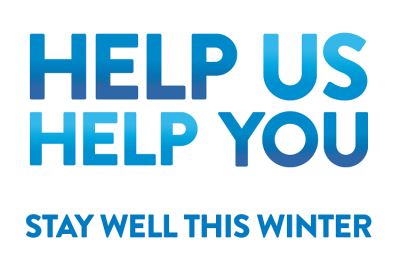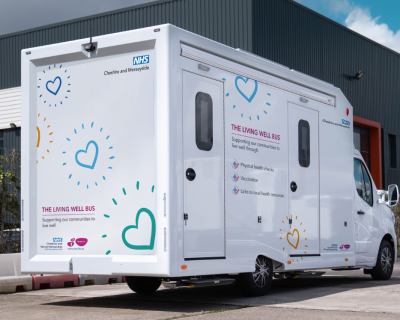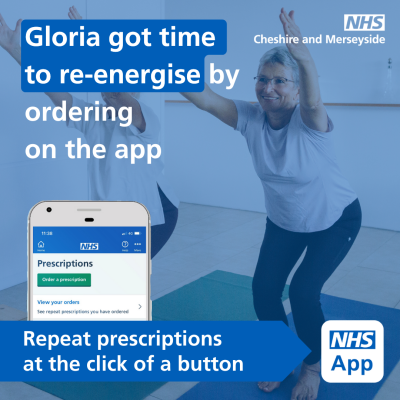
Winter conditions can be bad for our health, especially for people aged 65 or older, and people with long-term conditions such as heart or kidney disease, COPD (including emphysema and chronic bronchitis), asthma or diabetes.
Being cold can raise the risk of increased blood pressure, heart attacks and strokes.
The cold and damp weather, ice, snow and high winds can all aggravate any existing health problems, increase the risk of a fall, and make us more vulnerable to respiratory winter illnesses.
But there are lots of things you can do to stay well this winter, by getting your winter vaccines when you are invited to, keeping your home warm, keeping active, looking out for others, and making sure you are stocked up on prescriptions ahead of holiday periods.
If you need urgent mental health support, our mental health crisis line is here to help 24 hours a day, seven days a week.
Please call NHS 111 and select the mental health option. Our dedicated local staff will support you to access the help you need. The phone line is open to people of all ages, including children and young people.
Alternatively, the Shout text messaging service is also available 24/7 if you are unable to call. Text 'SHOUT' to 85258 to start a conversation, via text, with a trained volunteer, who will provide free and confidential support.
In a life-threatening medical emergency, go to A&E immediately or call 999.
You can find out more about the urgent mental health support available on the 'I need urgent help' page on our website using the button below.
If you feel physically unwell, it’s important to get medical help as soon as possible. This is especially true for people who are more vulnerable to the effects of cold weather, such as:
- people aged 65 and older
- babies and children under the age of 5
- people on a low income (so cannot afford heating)
- people who have a long-term health condition
- people with a disability
- pregnant women
- people who have a mental health condition
You can get help and advice from:
- Pharmacists can give treatment advice for a range of minor illnesses and can tell you if you need to see a doctor. Find a local pharmacy here.
- You may be able to speak to a GP online or over the phone, or go in for an appointment if they think you need to see someone face-to-face.
- If you have an urgent medical problem and you aren't sure what to do, visit 111.nhs.uk or call 111. The sooner you get advice, the sooner you’re likely to get better.
In a life-threatening medical emergency, go to A&E immediately or call 999.
The majority of people feel comfortable managing everyday minor ailments like coughs and colds themselves, particularly when they feel confident in recognising the symptoms and have successfully used over-the-counter medicine before.
In many cases people can take care of minor ailments themselves, reducing the number of GP consultations and enabling health and care professionals to focus on caring for higher risk patients, the very young and elderly, managing long-term conditions and providing new services.
More cost-effective use of NHS resources also allows money to be spent where it’s most needed and help improve health outcomes.
More information about how to treat many common conditions at home can be found on the national NHS website: www.

It's still possible to get your winter vaccinations after 19 December until 31 January 2024 via walk-in sites or by booking through local NHS vaccination services like pharmacies. You can also get your vaccines from our roving Living Well bus.
Winter COVID-19 vaccinations will not be available after 31 January 2025. COVID-19 vaccinations will be available again in Spring. The NHS will contact you if your NHS record suggests you may be eligible.
Browse local walk-in clinics or visit our Living Well page to view the Living Well bus timetable.

Visit the Living Well Service for upcoming clinics near you.
Patients in Cheshire and Merseyside can save time by ordering regular medication using the NHS App.
The NHS App is the quickest and easiest way to order a repeat prescription – and it puts you in better control of your own health.
You can use the App to order your medication at a time that’s convenient for you, and select which pharmacy you would like your medication to be sent to each time you order.
The NHS App also allows you to access a range of other NHS services - you can use it to view your GP health record, find your NHS number, register your donor status, check your vaccinations, and more.
The NHS App can be downloaded straight to your mobile phone or another device via the Apple App Store or Google Play, or if you would rather use a PC, you can also set up an NHS account and log in via the website: www.
Advice from the UK Health Security Agency (UKHSA) is to:
- Stay at home if you’re unwell and work from home if you can – this helps reduce the number of people you have contact with.
- Avoid contact with people while you have symptoms, especially if they have certain long-term health conditions, which means that they’re at higher risk of illness such as pneumonia, flu and COVID-19.
- Let people who need to come into your home know that you have symptoms.

You should wash your hands:
- once you get home, or into work
- after using the toilet or changing a nappy
- before and after handling raw foods like meat and vegetables
- before eating or handling food
- after blowing your nose, sneezing or coughing
- before and after treating a cut or wound
- after touching animals, including pets, their food and after cleaning their cages
Washing your hands properly removes dirt, viruses and bacteria to stop them spreading to other people and objects. If you do not have immediate access to soap and water then use alcohol-based handrub. For more information go to the NHS handwashing webapge.
The NHS offers treatments to people with COVID-19 who are at the highest risk of becoming seriously ill.
For more information, visit www.
- If you are eligible for COVID-19 treatments, you should keep rapid lateral flow tests at home to use when you develop symptoms.
- If you have any symptoms of COVID-19, take a test as soon as possible, even if your symptoms are mild.
- If your test is positive, call your GP practice, hospital specialist or NHS 111 as soon as possible. They’ll decide if you need referring for an assessment for COVID-19 treatment.
- If your test result is negative, but you still have symptoms of COVID-19, you need to do a total of 3 rapid lateral flow tests over 3 days.
Keeping warm over the winter months can help to prevent colds, flu and more serious health problems such as heart attacks, strokes, pneumonia and depression.
Age UK and UKHSA suggest heating your home to a temperature that is comfortable for you. This should be at least 18°C in the rooms that you regularly use such as your living room and bedroom. Low indoor temperatures can have a serious impact on your health, especially if you have medical conditions or are older.
With the rising cost of living, simple changes can help to keep you and your home warm now.
- Try to reduce draughts – you can fit draught excluders around doors cheaply.
- Keep your bedroom windows closed at night.
- Wear several layers of thinner clothing – this will keep you warmer than one thicker layer.
- Ensure you are eating enough and having hot drinks.
And remember to check that your heating and cooking appliances are safe. Contact a Gas Safe registered engineer to make sure they’re operating properly.
Visit www.
Make sure you’re receiving all the help you’re entitled to this winter.
There are grants, benefits and sources of advice available to help you make your home more energy efficient, improve your heating or help manage energy bills. There are also support measures in place to help with the cost of living, especially for those on low incomes.
For example, if you claim certain benefits or tax credits, you may be eligible for an extra payment from the government to help with the cost of living. The government has published energy saving tips to help save money on bills at www.
For further advice on these support measures, visit Age UK’s website or call 0800 169 6565.

